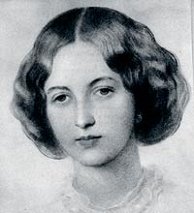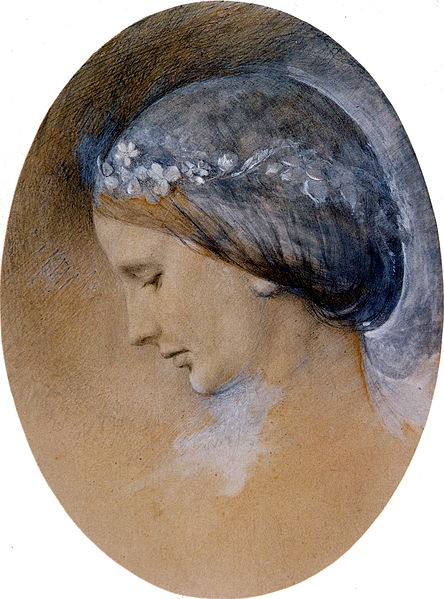John Ruskin, Effie Gray and Rose La Touche
Among the stranger tales of Victorian obsession are those concerning John Ruskin, the most influential art critic of Victorian Britain. But there is less here than meets the eye. Like Lewis Carroll he appears to have remained celibate his entire life, while being drawn to the innocence of young girls, a perfectly respectable matter in Victorian times, if a little ethereal.

The difference is that he married Effie Gray (shown above, by George Frederic Watts in 1851) and the marriage was a disaster. It was annulled six years later in 1854 and that was scandalous. Effie claimed, in a letter to her parents:
that he had imagined women were quite different to what he saw I was, and that the reason he did not make me his Wife was because he was disgusted with my person the first evening 10th April.
There was, and is, plenty of speculation about what those words mean and why the marriage failed, but the annulment was granted and Effie married the painter John Everett Millais the following year.
Then there was Rose La Touche... Ruskin met her years later when she was 10. When she turned 18, he proposed to her and she asked him to wait three years for an answer, when she would turn 21. They did not see much of each other after that and she finally rejected him (this was now 1872). She was always rather ethereal herself, which is perhaps what attracted Ruskin, but she died a few years later after a long illness, at the age of 27. This depressed Ruskin who had his own breakdowns as a result. He became attracted by spiritualism and believed he could summon the ghost of the dead Rose.
He painted this watercolor of her in 1862.

Like Wordsworth he retreated to the Lake District when he grew older and more eccentric, living near Coniston Water for the last decades of his life. Interestingly, in one of his books he dismissed Wordsworth's Ode: Intimations of Immortality as part of his attack on the "pathetic fallacy" of the Romantic poets. Yet his words indicate that Wordsworth's Ode spoke directly to the predicament of aging that he himself now faced and it would seem he resented it.
